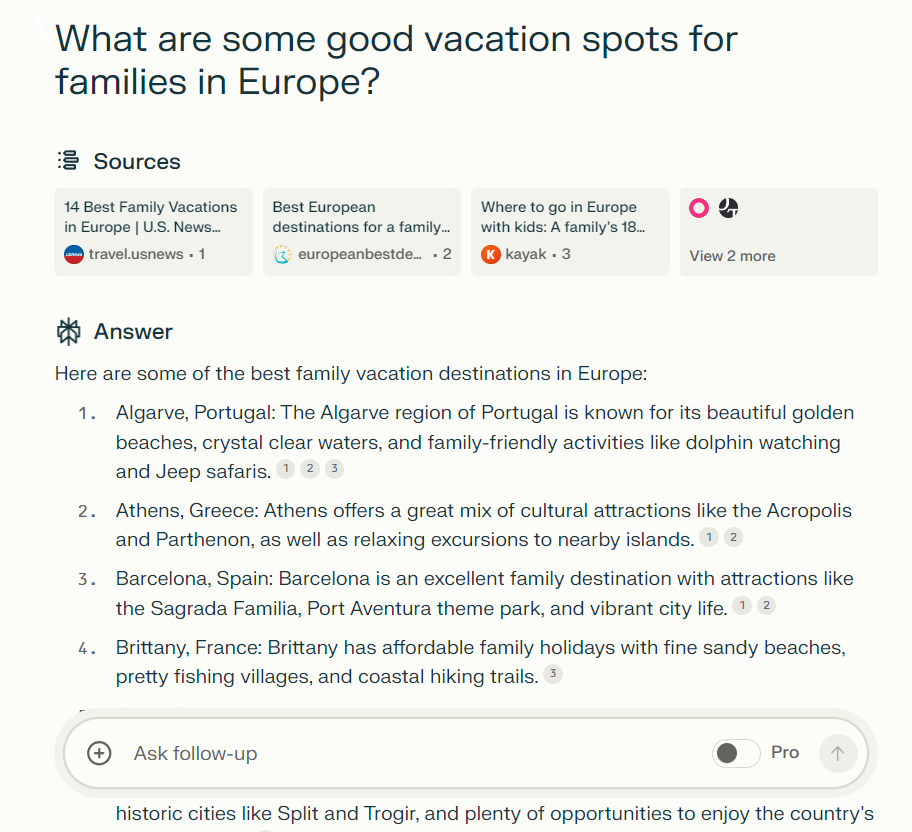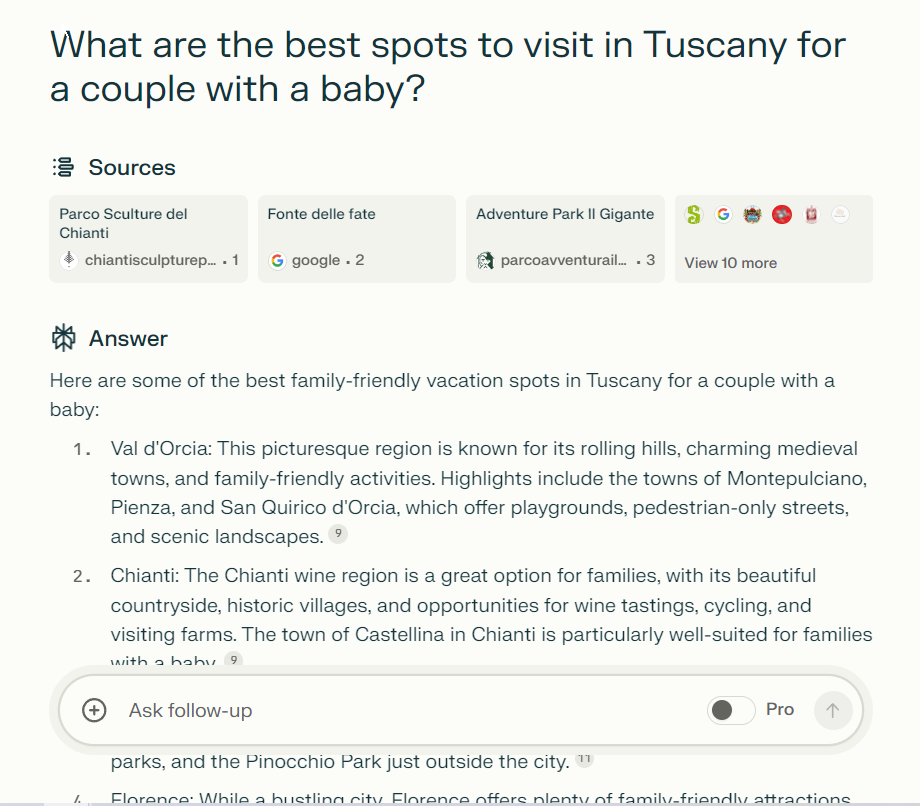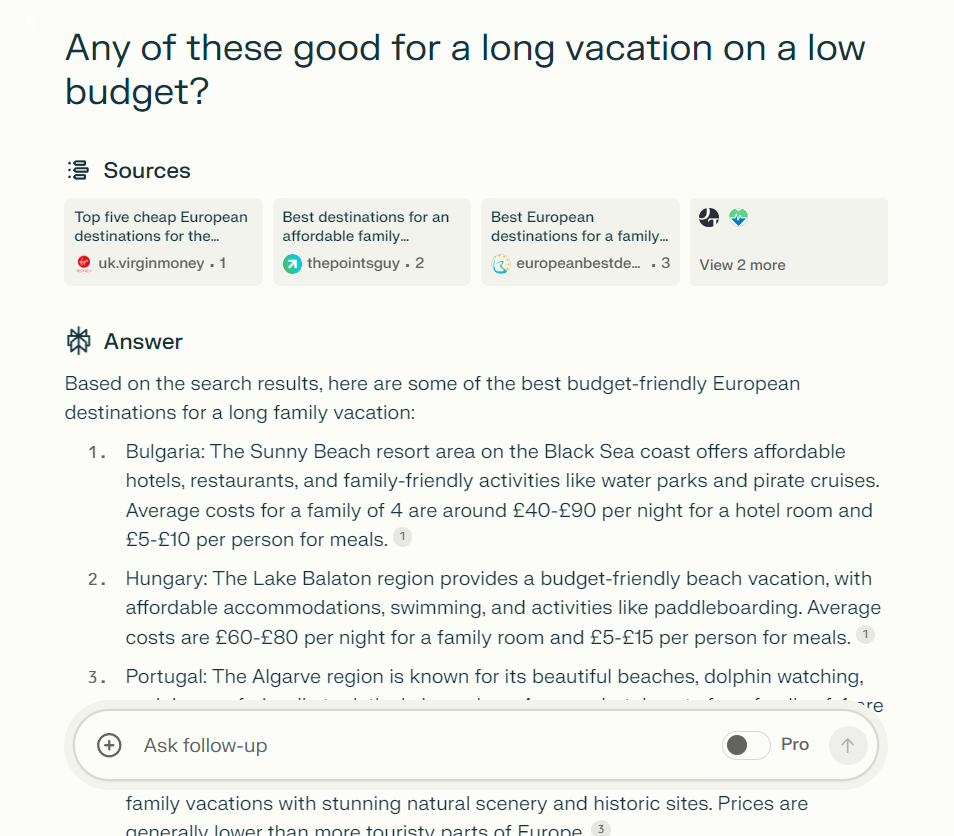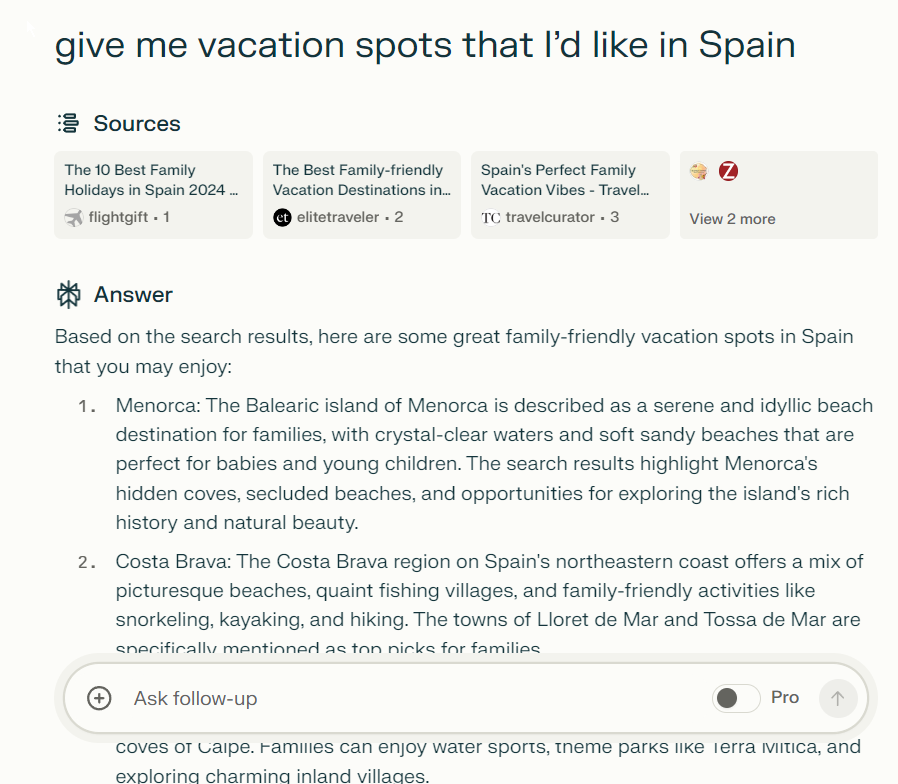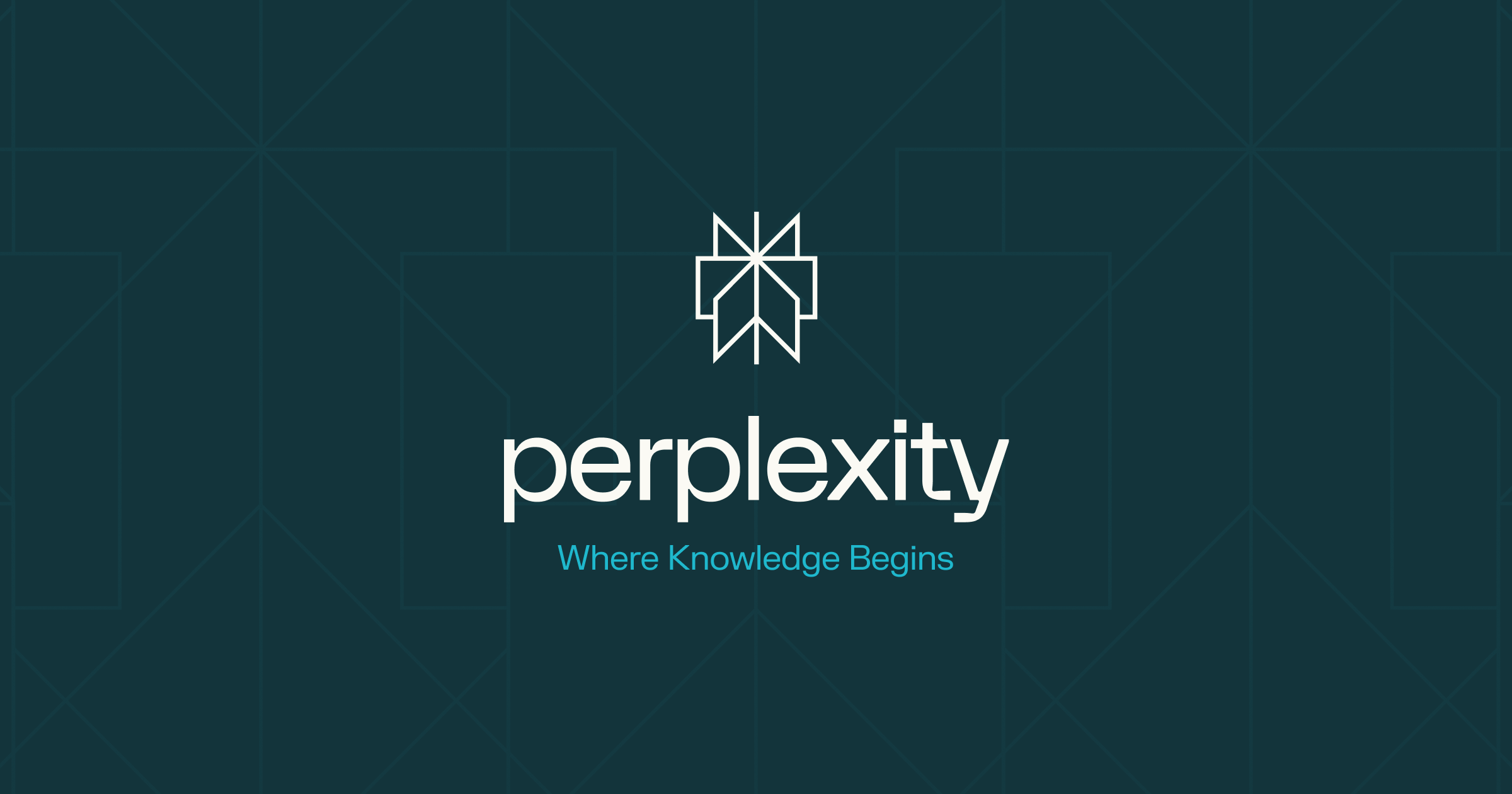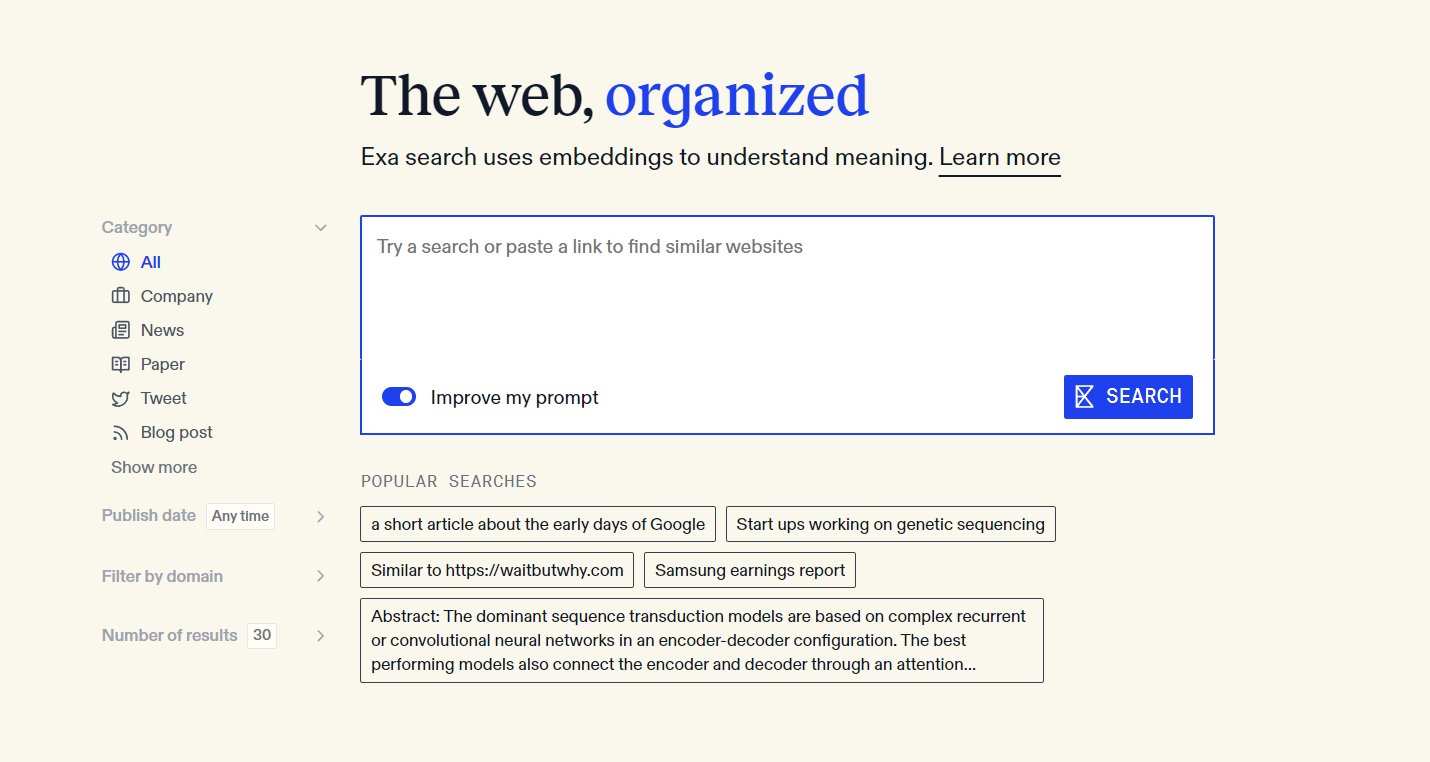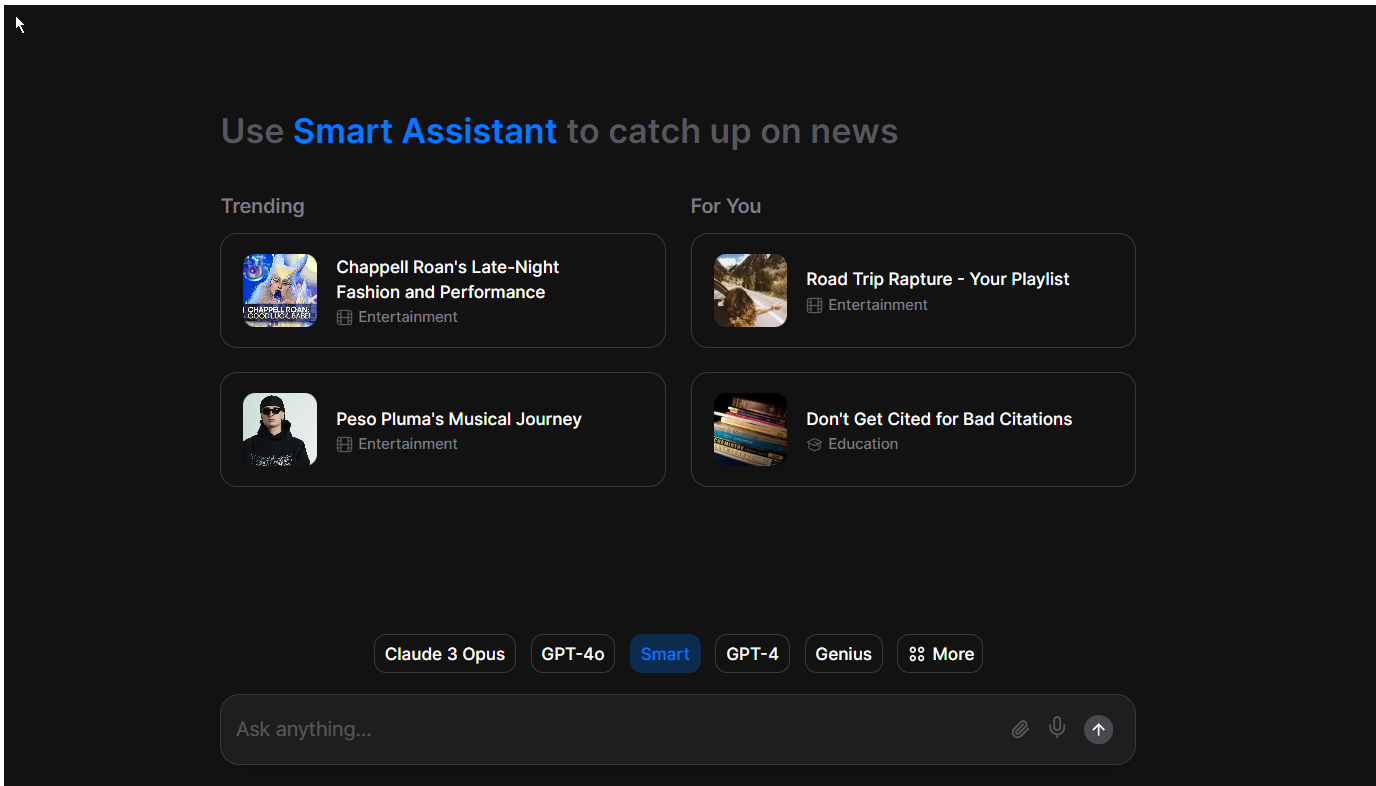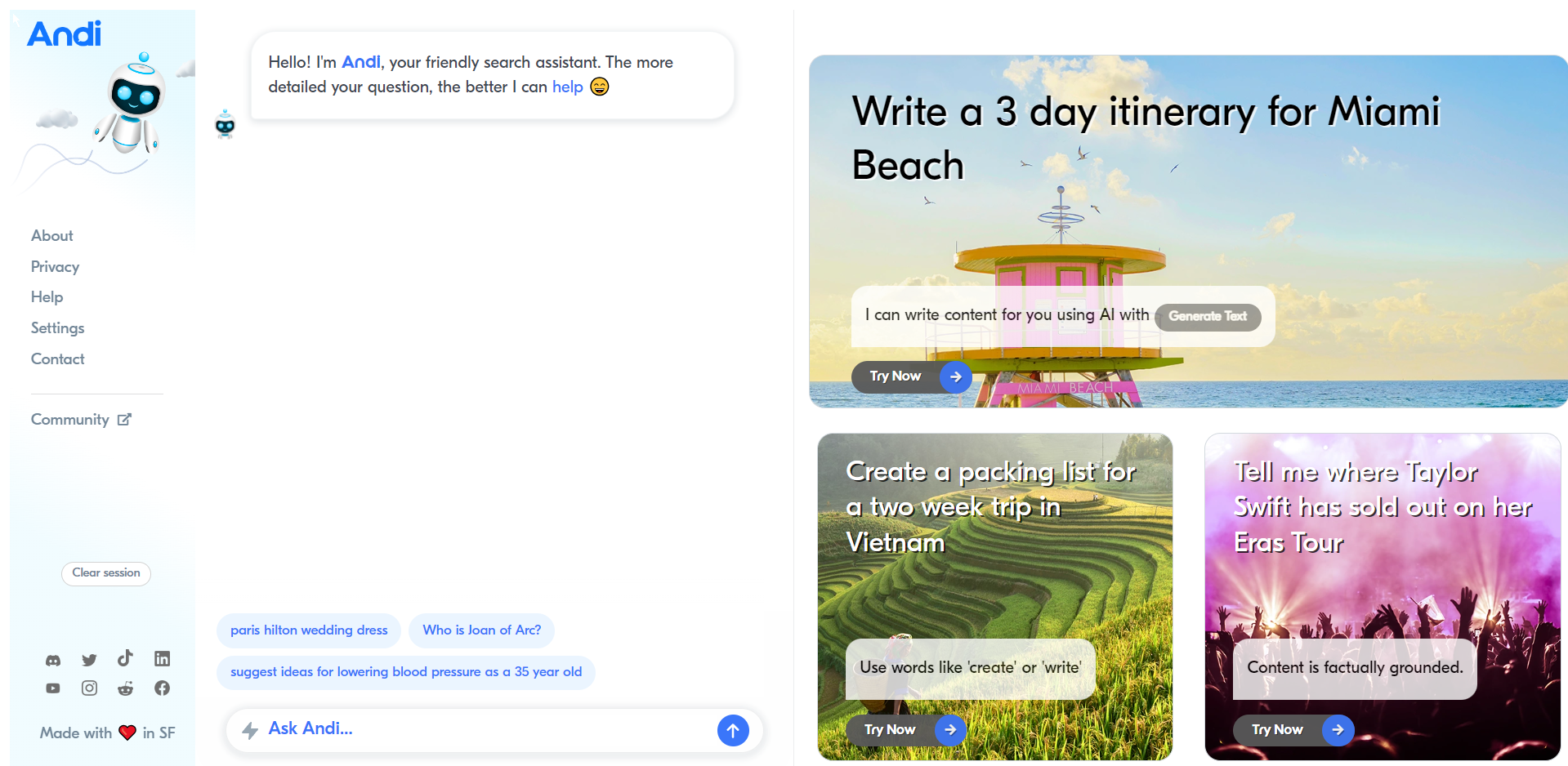Key Takeaways
- AI-powered search engines offer faster, more precise results than Google because they “understand” context and generate answers based on nuanced queries.
- AI search engines like Perplexity, Exa, and You AI utilize generative AI to browse the internet, provide references, and adapt to preferences.
- Privacy-friendly AI search engines like Andi aim to combat spam and misinformation while delivering accurate and succinct results.
AI-powered search is going to be the next big step in how we search for things online. I find it faster and easier than Google results—and you might too. Here are some AI search engines that I’ve been using.
Why You Should Use AI Search Instead of Google
Imagine you’re tasked with inventing a way to search the internet. There are billions of webpages to sift through scattered all over the web, and you only want to surface the ones relevant to the query at hand. How would you do it?
How Does Google Work?
Well, if you’re Google, you’ll deploy bots called crawlers or spiders that browse those billions of web pages. Google then analyzes what the crawlers have scanned and creates an index out of it. Think of the index at the start of a book which points to its contents, except for the entire internet. When you type in a query, Google compares it against its vast index to pull up the most relevant results. Those are the famous 10 blue links.
It’s an oversimplification, but that’s basically how we’ve searched the web ever since the first computers came online. You enter literal (mostly simple) keywords and phrases into Google, then it shows you the pages which have those exact keywords and phrases.
What’s the Need for AI in Search
Google works great until you have to search for something more complex. Perhaps, a long query that even needs follow up. Then you’ve hit a roadblock because it’s not possible to use the basic keyword sorting for subtle, heavily context-dependent searches. Those won’t return super relevant matches. You’ll end up with a dozen tabs and notes reading them all to synthesize your own answer.
That’s where AI comes in. Generative AI like ChatGPT or Google Gemini are already pretty good at picking up nuance, feel, and context in a conversion. They can also browse the internet just like you would, but a lot faster. Finally, AI can write quick and easy-to-digest answers based on what it finds. Combine those three things, and you’ve got a recipe for a search engine that runs on AI.
Let’s Run a Little Test
Here’s what I mean.
I asked Perplexity, an AI-powered search engine, “What are some good vacation spots for families in Europe?” It gave me a list.
I picked “Tuscany” from the list and asked “What are the best spots to visit in Tuscany for a couple with a baby?” It served up another list. Each entry in the list has a helpful explanation along with the source page where the engine found that entry.
I followed up with “Any of these good for a long vacation on a low budget?” It remembered the context of the conversation so far (I didn’t have to specify “couple” or “baby” again). And I got ten stay options in Tuscany that met my preferences.
Tuscany didn’t have what I was looking for, but I didn’t want to start the search all over again. So I asked the AI search engine to give me vacation spots that I’d like in Spain.
It answered my questions with a question to narrow down the results. I selected beaches. And it added that to my list of other preferences. It even has a helpful related section just like Google.
The whole search process took me about a minute. I also Googled “vacation spots for a couple with a baby in Europe for an affordable long-term stay.” And unsurprisingly, it didn’t return a single one-to-one match. Just some guides on how to travel with a toddler and some random vacation spots in Europe. You can imagine how long it would take if you browsed all those sites and compiled the results manually.
That’s the power of generative AI in search. That’s why Google and Bing are trying to integrate AI overviews into their search engines. But you don’t need to limit yourself to the hybrid search experience of these engines.
To get you started with AI-powered search, here is my round up of the best AI search engines you can try.
Like all large language models, these AI search engines are also prone to hallucinating and fabricating information with complete confidence. I recommend not using these bots for medical, financial, or legal advice. When researching critical information, always fact-check what an AI tells you. Privacy is another concern because these bots may be able to use your information for training purposes. Be sure to never share any sensitive personal information like your banking details or passwords.
Perplexity AI
Perplexity is currently the most popular AI-powered search engine. It’s built on ChatGPT, except it uses sources from the internet to give you answers. Just like ChatGPT, you can converse with Perplexity like you would with a truly know-it-all assistant. It understands context cues, remembers them, and adapts to my preferences as the conversation continues.
I used Perplexity for the demonstration above. What makes it different from ChatGPT is that it browses the web for every question and provides references. It’s also why Perplexity AI always delivers up-to-date results (ChatGPT’s knowledge is staggered by a year or two). It doesn’t hallucinate as much. The results are usually more precise and accurate. It’s not perfect because it can just make up citations. Or sometimes it fails to cite a claim.
The free version of Perplexity is capped, and the quota is renewed every four hours. Perplexity also has a paid tier.
Exa
Exa is another generative AI-based search engine. It understands what you’re trying to look for and serves up relevant results based on that. But it works on link embeddings. Link embeddings are how people describe links online. Something like “these are the best vacation spots in Europe” with a link attached to it. It scans the text in your query and predicts links relevant to it. Based on those predictions, it delivers a list of links.
But unlike Google’s 10 blue links, the Exa links don’t rely on keywords. They’re based on prompts. It takes a little bit of training to nail the Exa prompt engineering (queries need to be phrased like answers to get quality results). But you can sidestep that hassle by turning on “Improve My Prompt.” Exa will automatically build a prompt off your query and surface search results based on that.
I also love the filters Exa has (way better than Google’s in my opinion). You can filter by news, paper, PDF, blog, Tweet, personal site, or just type in anything you want to filter by. That way you can get all of Google’s filters and more. You can even paste a link and find similar ones.
You AI
You AI is similar to Perplexity in its design and features. However, it can work with a bunch of LLMs other than ChatGPT. You can pick from Gemini, Llama, Claude, Command R, Dolphin, and Databricks.
It also has a really beautiful interface and formats the answers really well. You can upload different kinds of files or use voice commands. Just like Perplexity, sources are attached with every answer. Plus, it has a helpful “You May Want to Ask” section.
Andi AI
Andi Search is a privacy-friendly AI search assistant. It’s completely free and designed to deliver factual, accurate, and precise results based on generative AI.
Andi’s search results were pretty different from what I found on Google or Bing. If you don’t wanna land on the same dozen sites you get every search, you can find some fresh and underrated gems here. If you’re in a rush, you don’t have to read the whole webpage. Just let Andi summarize it for you with a single click.
It isn’t trying to be as feature-rich as the other engines on this list. It just wants to do one thing and do it well—that is, to fight spam and misinformation created by AI chatbots. Andi also respects your privacy and doesn’t store user data or track you.
Andi can be a little slower than the rest though because it’s still in active development.
Try these AI search engines and save yourself the hassle of scrolling through irrelevant Google search pages.


